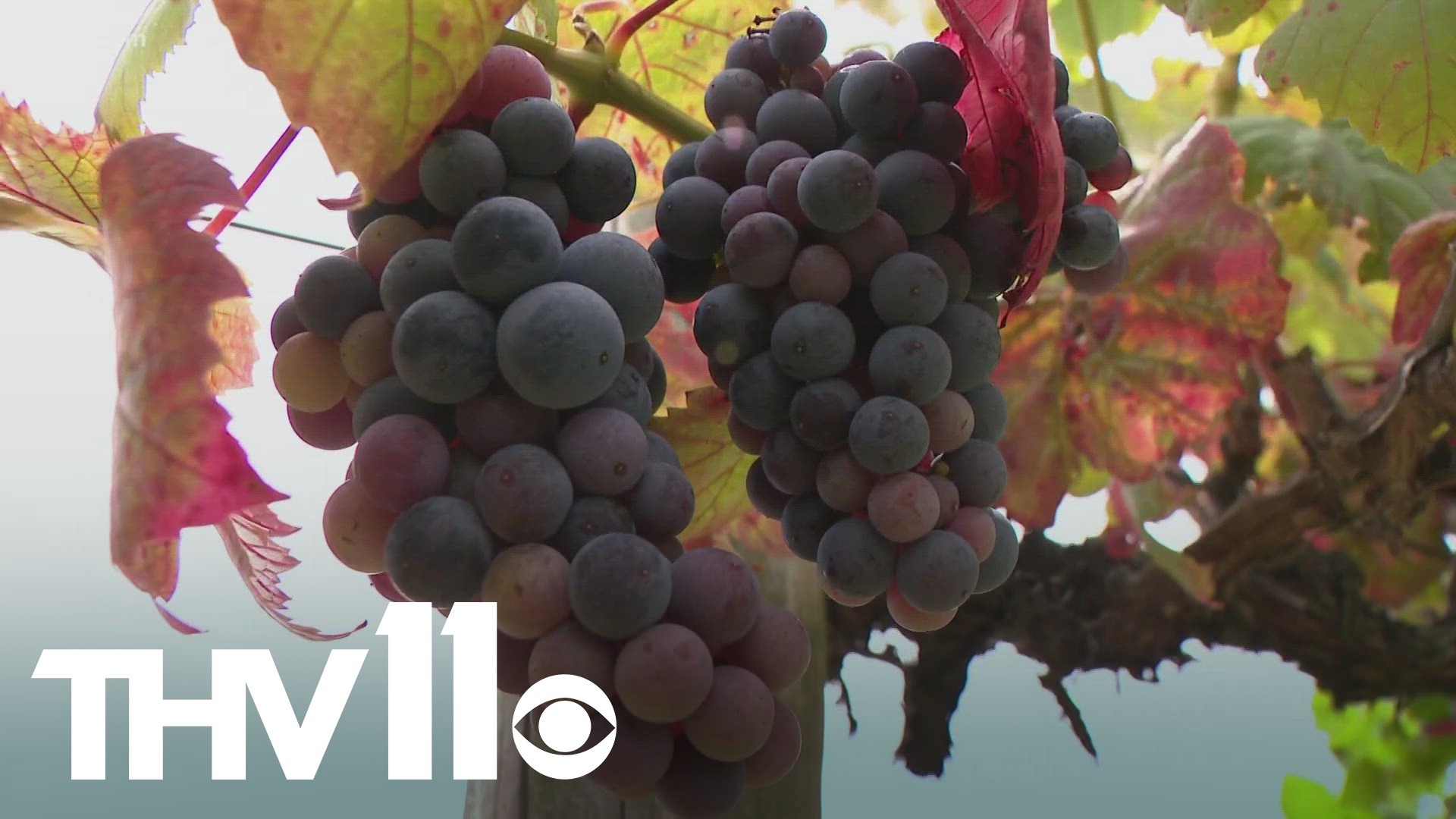ARKANSAS, USA — Arkansas is home to many large businesses, including some of the largest wine producers in the country. A couple of months ago, we introduced you to one of those producers and explored the industry's rich history here in the Natural State.
A key ingredient to that history has been grape breeding, which is something the University of Arkansas has worked on for decades through its fruit breeding program.
Dr. Rene Threlfall is one of the scientists at the university's fruit research station. She explained that one of their goals is sustainability, so we can enjoy our favorite fruits grown right here in Arkansas— and a big focus is grapes.
“Table grapes originally and they also began crosses on wine grapes, back in the 70s, and 80s,” Dr. Threlfall described.
Wine is a thriving industry here in the Natural State, which has made for a perfect pair in their research.
“We have over 20 wineries in our state, and we have about 30 grape growers,” said Threlfall. “While that seems like not very many, it's actually really impactful in the economy of the state.”
She said the process of breeding grapes is kind of like making wine— they both take time and patience.
“One of the main reasons it takes decades is because, in grape vines, we don't really see fruit for three years,” said Threlfall. “So, you plant the plant, it grows the into the vine, the vine grows, and then the vine produces grapes, but not until about the third year.”
It’s a long journey to even get to that point.
“You're basically taking parts of female parts of one plant and male parts of another plant and mixing up the pollen and creating new seeds and then those become get planted and become selections,” Threlfall described.
It's a big undertaking that isn't done everywhere.
“There's not much great breeding happening all over the world, so it's very unique that we have that capability,” said Threlfall.
While it’s not an easy task the university has done it with the goal of growing more grapes here, rather than bringing them in from outside the state.
“To breed grapes that grow well in Arkansas, because this is a warmer, humid, rainy climate that is so it's not often the ideal situation that you have in other parts,” Dr. Threlfall explained.
Despite those tough conditions, their research has led to success.
“We've released four different cultivars of wine grapes,” said Dr. Threlfall. “The first two were opportunity and enchantment and then the last two that were released last year were dazzle and indulgence.”
Some of these grapes eventually made their way to Post Winery in Altus.
“They've been evaluating enchantment and opportunity and some of the other cultivars for probably over 10 years,” said Threlfall.
Enchantment has been the biggest success story of the four grapes. It was first developed in 1990 and patented in 2016. The white wine grape now makes up 75% of several bottles that sit on the shelves inside the Post family winery.
“A good five years before we even saw anything like that,” said Dr. Threlfall. “And that was because they had the planting established before we released the grape, so they were able to get a little bit of a head start.”
James Post is part of the team that has looked at and cared for these grapes provided by the university. He said it took a lot of trial and error to get the vines growing.
“The trials and different breeding’s trying to match rootstocks to different plants and just whatever sin tends to work and grow here. That's what's important,” Post described.
His family has been a staple in the Arkansas wine industry since the 1800s and he said it's exciting to continue being part of the history.
“It was really a nice feeling all this hard work and time starts to show,” Post added.
While the other three grapes haven't been able to be turned into wine and bottled for shelves just yet the vines are already at nurseries.
“These vines can be purchased at a commercial nursery and then those grape growers start growing the grapes,” said Dr. Threlfall.
Threlfall said this is another way for Arkansas to continue having an impact on the wine industry beyond just our state.
“The outreach is slow in terms of our impact because we really won't know probably for about 10 years until we see start seeing bottles of wine of the particular cultivars, commercially,” said Threlfall.
The university's fruit research station said it plans to release another new breed of grape they’ve been working on for over 10 years.

